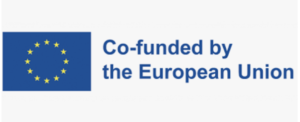The aim of this project is to support schools in creating a culture of democracy in which students learn about the past and act in order to prevent history from repeating.
 Teachers from several European countries will be involved in a process aiming at developing their competences to teach about the Holocaust and active citizenship.
Teachers from several European countries will be involved in a process aiming at developing their competences to teach about the Holocaust and active citizenship.
The Reference Framework of Competences for Democratic Culture, published by the Council of Europe in 2018 will serve as the basis for the development of the training methodology. Teachers will learn about the Holocaust and other genocides through the lens of human rights and democratic values and they will learn about present day discrimination and injustice through the lens of human rights.
A number of 120 direct beneficiaries will be involved in the project – mainly teachers – and over 2500 indirect beneficiaries – students, parents and other members of local communities.
The main activities of the project include: national seminars in Lithuania, Spain and Croatia, follow-up projects carried out by participating teachers with students and members of the local community and an international conference with teachers, organisations and institutions from 8 European countries.
The teachers involved in the project will develop their competences to teach about the past in a respectful way towards victims of atrocities and to guide their students to learn from the past and stand up for victims of human rights abuses, intolerance and injustice today. The project will empower students to become active European citizens who think critically and deconstruct propaganda and manipulation attempts. The project will also empower a European Network of teachers, organisations and institutions who promote a democratic culture through a multi-perspectivity approach and critical understanding of the past and of themselves.
The project partners are:
The project is co-funded by the European Union through the CERV programme and by TOLI – The Olga Lengyel Institute for Holocaust Studies and Human Rights, and it is implemented in the period April 1st 2022 – March 31st 2024.
The national seminar for teachers in Lithuania was organized by the The Secretariat of the International Commission for the Evaluation of the Crimes of the Nazi and Soviet Occupation Regimes in Lithuania in Vilnius from 19 to 23 June 2023. A report of the event is available here.